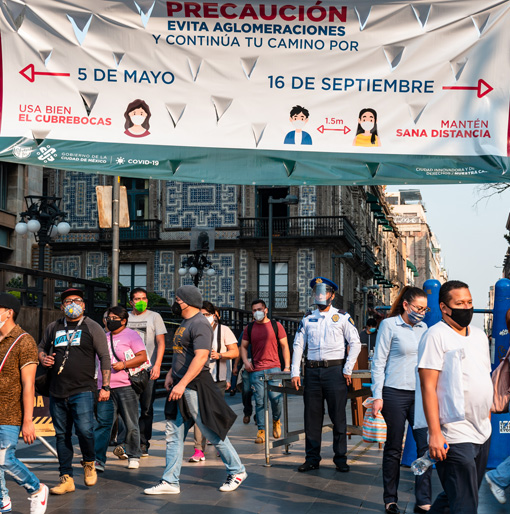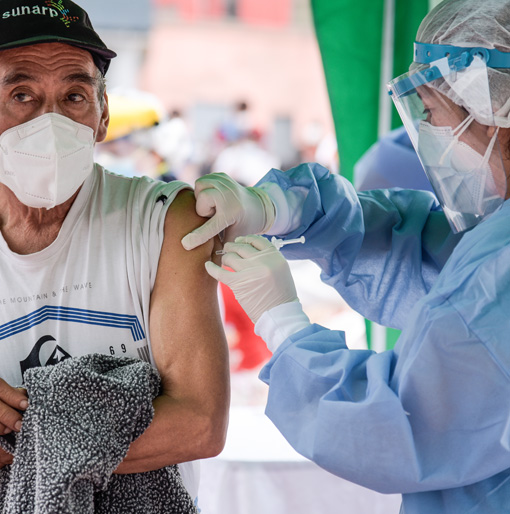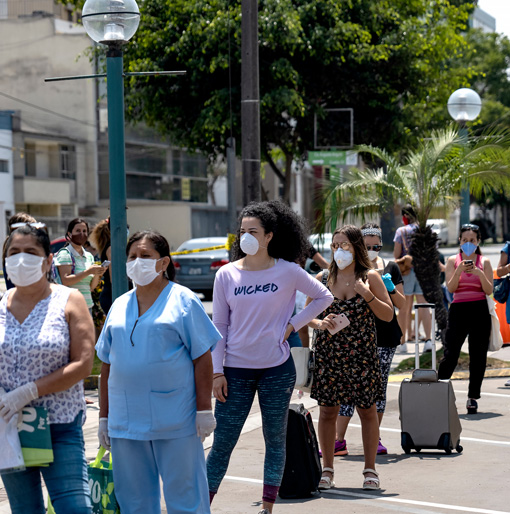
COVID-19 High-Frequency Phone Survey (Phase 2)
Year: 2021
Country:Â 23 countries in Latin America & the Caribbean
Subject: Living Conditions and Poverty / Health
Client:Â World Bank
The High-Frequency Phone Survey (HFPS) is a project conceived by the World Bank to measure the effects of the COVID-19 pandemic on households, including growing unemployment and underemployment, drops in labor and non-labor income, increasing prices and human capital losses.
Following up on the HFPS’s first phase that covered thirteen Latin American countries in 2020, the World Bank implemented a second phase in 2021, covering 23 countries in Latin America and The Caribbean. Sistemas Integrales had a key role in this new phase also: it was in charge of the sampling design and quality control in all 23 countries and carried out the survey implementation in 13 of them.
Like in its first phase, in the second phase the survey followed a panel sample and collection periods lasted about fifteen days on average. The survey was administered to one adult per household and asked the respondent both individual and household-level questions, with a child-specific module.
All national samples were based on a dual frame of cell and landline phones generated through a Random Digit Dialing (RDD) process, covering all possible numbers under the national phone numbering plan. Furthermore, given pandemic-related restrictions on mobility and assembly, survey operations had to comply with the following procedures:
• Interviewers worked from home as call centers could not be used
• Training of interviewers had to be carried out remotely
• Supervision and tracking of fieldwork was done remotely
In all 23 countries Sistemas Integrales was in charge of the sampling design, questionnaire design, interviewer training, data management, supervision and quality control. Highlights of technical features include:
• The RDD methodology guaranteed full coverage of cell and landline telephone active numbers, eliminating coverage bias with respect to the population with a phone.
• Interviewer training was done online using innovative techniques. for teaching and practicing and applying stringent interviewer selection criteria.
• Field implementation was supported by TELSIA (Telephone Survey Integrated App), an all-in-one application developed by Sistemas Integrales for phone surveys that interviewers can use either from home or at a central location, with laptops, tablets or cell phones. TELSIA was used to manage the electronic questionnaires, administer the sample and calls automatically, monitor compliance with rigorous calling protocols and perform ongoing online supervision.
• Sistemas Integrales developed an online quality control dashboard to monitor a set of survey-specific quality indicators based on data and paradata. This permitted identifying different types of nonsampling errors and interviewer effects rapidly, in order to act accordingly. The online dashboard was updated daily and was accessible to the World Bank team on an ongoing basis over the entire field period.
• Randomized Audio Supervision (RAS), an auditing application developed by Sistemas Integrales, was used for audio supervision. Random parts of 100% of interviews were recorded and assessed by trained auditors to assure the accuracy of the data registered by the interviewers and compliance with protocols.
Address
Jose M de la Barra 412, piso 4
Postcode 6500446
Santiago, Chile
Phone
+562 2638 1841
+562 2639 4554

Sistemas Integrales 2024 - All Rights Reserved
Address
Postcode 6500446
Santiago, Chile
Phone
+562 2639 4554
EmailÂ







